Aldi Stores – 7 things you need to know
2023-09-26
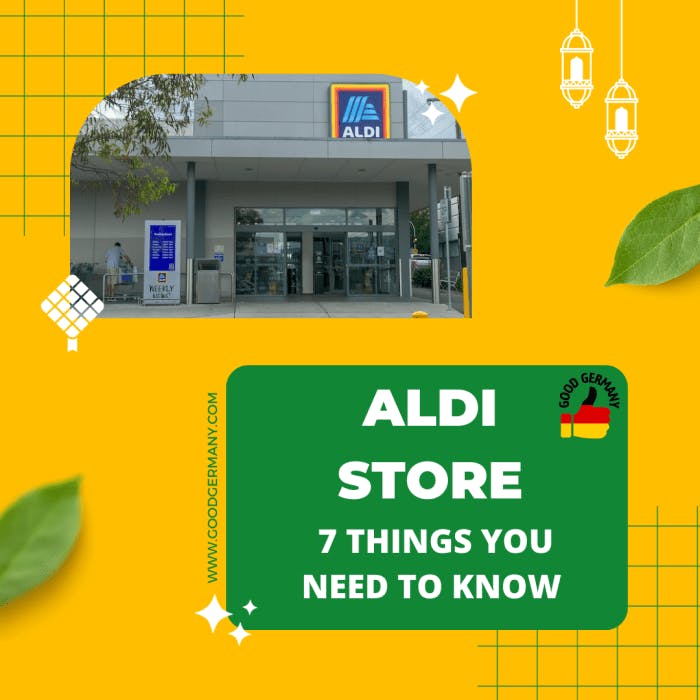
When it comes to grocery shopping, we all look for two things: affordability and quality. Aldi, a well-known supermarket chain, has been satisfying these needs for decades. In this article, we’ll explore what makes Aldi stand out in the world of retail and why it should be your go-to destination for grocery shopping. From its unique business model to its high-quality products, we’ll cover it all.
In the realm of grocery shopping, Aldi has emerged as a game-changer. With its unique approach to retail, this supermarket chain has garnered a massive following. In this article, we will delve into the world of Aldi stores, uncovering what makes them stand out in the competitive market of grocery shopping.
Topic | Information |
Name | Aldi |
Founded | 1946 ( ) and 1961 ( ) |
Headquarters | Aldi Nord: Essen, Germany |
Aldi Süd: Mülheim an der Ruhr, Germany | |
Founders | Theo Albrecht (Aldi Nord) |
Karl Albrecht (Aldi Süd) | |
Ownership | Privately held by the Albrecht family |
Type | Discount supermarket chain |
Number of Stores | Over 10,000 stores globally (2021) |
Presence | Operates in over 20 countries |
Business Model | Emphasizes cost-cutting and efficiency |
Private Labels | Offers a wide range of private label brands |
Product Range | Groceries, household items, electronics, |
clothing, and more | |
Store Layout | Smaller stores with limited selection, |
efficient shelving, and minimal frills | |
Business Strategy | Focuses on providing quality products at |
competitive prices | |
Awards | Various awards for quality and value |
Sustainability | Commitment to sustainable sourcing, |
reducing waste, and energy efficiency | |
Community | Supports local communities through |
donations and charity work | |
Online Presence | Expanding online grocery shopping options |
Notable Products | Aldi’s “Special Buys” and seasonal offers |
Competitors | Walmart, Costco, Lidl, Tesco, etc. |
Aldi
The Aldi Story
History and Growth
Aldi, short for “Albrecht Discount,” originated in Germany in 1946 when brothers Karl and Theo Albrecht took over their mother’s small grocery store. Their vision was simple yet revolutionary: provide essential groceries at prices that everyone could afford. Fast forward to today, and Aldi operates thousands of stores worldwide, with a strong presence in Europe, the United States, and Australia.
As of my last knowledge update in September 2021, Aldi is a global discount supermarket chain with stores in many countries around the world. It was founded in Germany in 1946 by brothers Karl and Theo Albrecht. The name “Aldi” is a combination of “Albrecht” and “Discount” (Albrecht Discount).
Aldi operates under two main brand names:
Aldi Nord:
This branch of the company operates stores in Northern Europe, including Germany, the United Kingdom, Belgium, the Netherlands, and more.
Aldi Süd:
This branch operates stores in Southern Europe, the United States, Australia, and other regions.
Aldi is known for its no-frills approach to retail, offering a limited selection of products compared to traditional supermarkets. They focus on providing high-quality products at competitive prices, often with a strong emphasis on private label or store brand products.
Aldi’s global presence has continued to expand, with thousands of stores worldwide. However, specific information about the number of stores, locations, and operational details may have changed since my last update in September 2021. For the most current information on Aldi’s global store locations and operations, I recommend visiting their official website or consulting a recent news source.
Global Aldi
Global Aldi Expands Rapidly, Aims to Become World’s Leading Discounter
Global Aldi, the German-owned discount grocery chain, is expanding rapidly around the world, with plans to open hundreds of new stores in the next few years. The company is already one of the largest retailers in Europe, and it is now making a major push into North America and Asia.
Aldi’s success is due in part to its unique business model. The company sells a limited selection of high-quality products at very low prices. Aldi stores are also typically smaller and more efficient than those of its competitors, which helps to keep costs down.
In recent years, Aldi has been gaining popularity among consumers who are looking for ways to save money on groceries. The company’s low prices have made it a popular choice for budget-minded shoppers, as well as for families and individuals who are looking for ways to stretch their food dollars.
Aldi’s global expansion is being driven by a number of factors, including the growing popularity of discount grocery shopping, the increasing demand for high-quality food at affordable prices, and the company’s strong financial performance.
In the United States, Aldi is aiming to open 2,500 stores by 2025. The company is currently operating over 2,000 stores in 38 states. In Europe, Aldi is planning to open 1,000 new stores in the next three years. The company currently has over 10,000 stores in 20 countries.
Aldi is also expanding rapidly in Asia. The company opened its first stores in China in 2019, and it is now planning to open hundreds more in the next few years. Aldi is also expanding its presence in Australia and New Zealand.
Aldi’s global expansion is putting pressure on traditional grocery retailers, such as Walmart, Kroger, and Tesco. These retailers are facing increasing competition from Aldi, as well as from other discount grocers, such as Lidl.
Analysts say that Aldi is well-positioned to become the world’s leading discounter in the next few years. The company has a strong financial position, a loyal customer base, and a proven track record of success.

Business Model
Aldi’s unique business model sets it apart from the competition. The store layout is minimalistic, products are displayed in their shipping boxes, and you’ll need a quarter to release a shopping cart. This cost-saving approach allows Aldi to offer products at lower prices.
Private Label Products
One of Aldi’s secrets to affordability is its emphasis on private label products. About 90% of the products on Aldi’s shelves are exclusive brands, allowing them to cut out middlemen and offer significant savings to customers.
Aldi Quality You Can Trust
Rigorous Standards
Despite its low prices, Aldi maintains strict quality control. Their products undergo rigorous testing to ensure they meet or exceed industry standards. This commitment to quality has earned Aldi numerous awards for its products.
Fresh Produce
Aldi’s produce section boasts an impressive selection of fresh fruits and vegetables. They source locally when possible, ensuring that you get the freshest produce available.
Organic and Specialty Items
For health-conscious shoppers, Aldi offers a range of organic and specialty items at competitive prices. You don’t have to break the bank to eat well.
The Aldi Philosophy
The Aldi Difference
Aldi is not your typical supermarket. It operates on a philosophy that revolves around providing customers with quality products at affordable prices.
Private Label Products
One key aspect of Aldi’s strategy is its emphasis on private label products. These are brands exclusive to Aldi, allowing them to maintain quality while keeping prices low.
Limited Selection
Unlike sprawling supermarkets, Aldi stores offer a limited selection of items. This streamlined approach enables them to maintain efficiency and pass the savings onto customers.
The Aldi Shopping Experience
Store Layout
Aldi stores are known for their no-frills layout. We’ll explore how this simplicity benefits the shoppers.
The “Aisle of Specials”
Aldi’s unique “Aisle of Specials” features weekly deals and rotating merchandise, adding an element of excitement to each visit.
Shopping Carts and Bags
Aldi’s cart and bag system encourages customers to bring their own, contributing to environmental sustainability and cost savings.
Aldi Quality Control
Rigorous Testing
Aldi takes quality control seriously. We’ll dive into their rigorous testing procedures, ensuring that only the best products make it to the shelves.
Customer Feedback
Aldi values customer feedback, and we’ll explore how this feedback loop helps them constantly improve their offerings.
Aldi Savings and Value
Affordable Prices
Aldi’s commitment to low prices is evident throughout the store, and we’ll discuss how they manage to keep their prices so competitive.
Weekly Specials
We’ll highlight the incredible savings customers can enjoy through Aldi’s weekly specials.
Conclusion
In conclusion, Aldi stores have revolutionized the way we approach grocery shopping. Their dedication to quality, affordability, and sustainability sets them apart in a crowded market. When you shop at Aldi, you’re not just saving money; you’re embracing a shopping experience that values both the customer and the environment.
5 Unique FAQs
Q1: Are Aldi’s private label products of good quality? A1: Absolutely! Aldi is known for its high-quality private label products that rival top national brands.
Q2: Are Aldi’s prices really that much lower than other supermarkets? A2: Yes, Aldi’s prices are significantly lower due to their efficient business model and commitment to affordability.
Q3: Can I find organic and specialty products at Aldi? A3: Yes, Aldi offers a variety of organic and specialty items, often at lower prices than competitors.
Q4: Are Aldi stores available nationwide? A4: While Aldi is continually expanding, its availability may vary by region. Check their website for locations near you.
Q5: Does Aldi accept credit cards? A5: Aldi primarily accepts debit cards, cash, and mobile payment options. Credit cards may not always be accepted.
Explore Aldi stores today and experience the perfect blend of quality and savings that has made them a household name.
Share
Tag
Related Blog
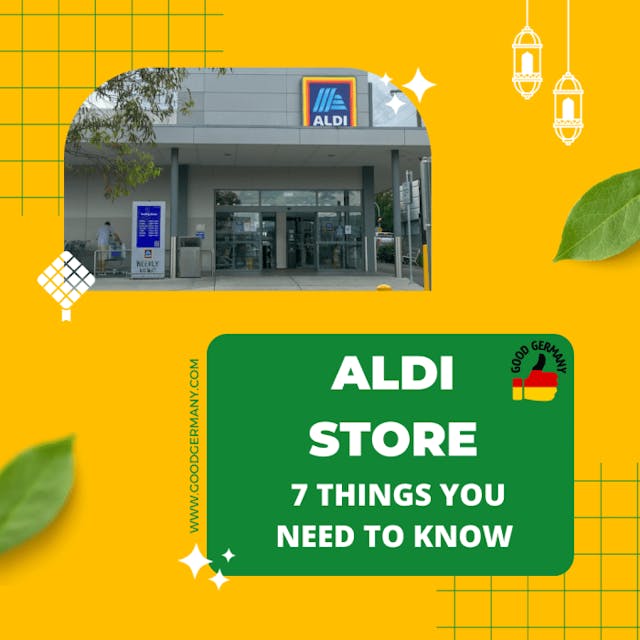
Aldi Stores – 7 things you need to know
2023-09-26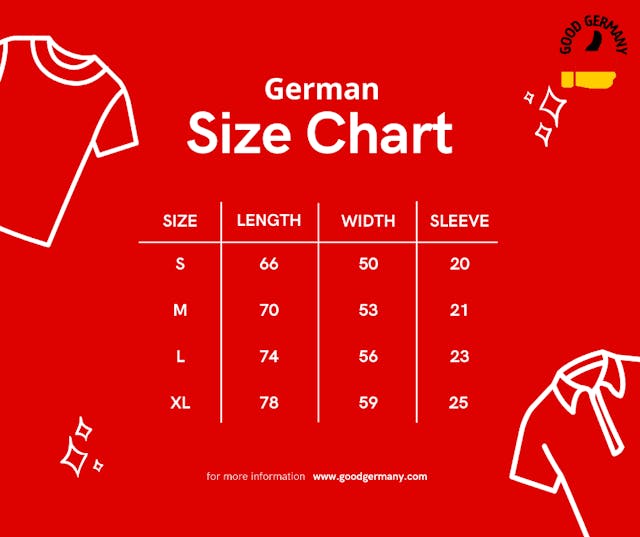
[German] Clothes and Shoes Size : 15 – 48
2023-09-20
Exploring the Perks of Duty-Free Shopping in Germany
2023-08-18
15 Best German Gifts | Gifts from Germany
2023-10-29
German Shopping Websites – Top 5
2023-07-21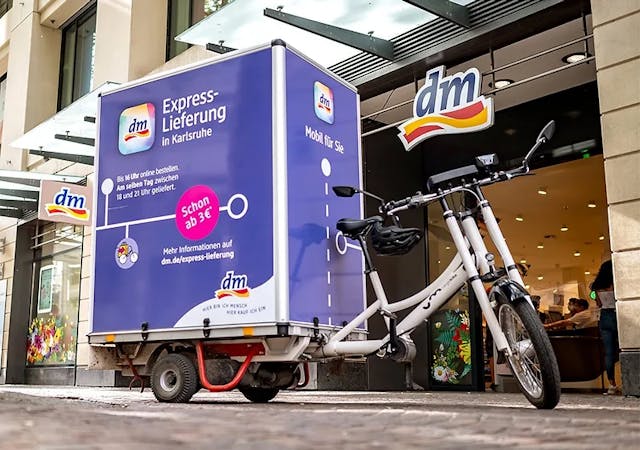
Must-Buy Products from DM When Traveling to Germany
2023-07-06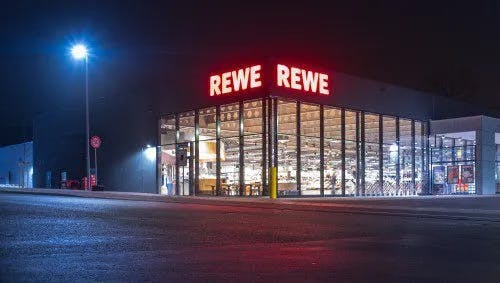
German Supermarket Types and Their Characteristics
2023-06-23